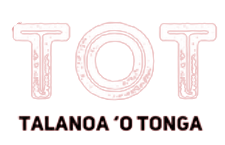As Tonga’s leaders came together for the Economic Development Summit last week, they faced a significant challenge: how to turn strategic plans into real results. While having good policies and development strategies is crucial, Peter Drucker’s famous quote serves as a reminder: “Culture eats strategy for lunch.”
This means that the success of Tonga’s economic development plan will not only depend on the strategy itself but also on the workplace culture that supports it.
The Role of Leadership in Building Culture
Research from Gallup shows that 70% of employee engagement is influenced by leadership. This means that leaders, including government ministers, CEOs, and department heads, play a major role in shaping a culture of high performance. If leaders do not create the right environment, even the best economic plans will fail.
Studies from McKinsey & Company also support this idea. Their research finds that organizations with strong leadership and a positive culture are 3.7 times more likely to achieve high performance than those without. For Tonga, this means that building a culture of accountability, teamwork, and innovation is not optional—it is necessary for success.
The Importance of a Clear Vision and Strong Values
A high-performance culture starts with a clear vision and strong core values that motivate employees. Leaders must communicate a vision that encourages people to do their best work. This vision should not just be words on paper but should be reflected in daily actions that support long-term goals.
Core values also play a key role in workplace behavior. These values shape daily decisions and habits that define the work culture. While the faa’i kavei koula (the four golden values of Tongan society) provide an important foundation, leaders must also introduce specific workplace values such as honesty, teamwork, openness, and creativity. These values help guide employees and create a strong, productive environment.
Using Daniel Pink’s Drive Framework to Motivate Employees
Daniel Pink’s Drive theory explains that employees are most motivated when three psychological needs are met:
Autonomy: People work better when they have control over how they do their jobs. Tonga’s leaders should give local teams more decision-making power so they can find creative solutions to challenges.
Mastery: Employees want to get better at their work. Offering training, mentorship, and skill-building opportunities will help employees improve and feel more confident in their roles.
Purpose: People are most engaged when they see how their work contributes to something bigger. Leaders should help employees understand how their efforts support Tonga’s national development.
What Leaders Must Do
Tongan leaders must go beyond making policies—they must actively shape the work culture by:
Setting an Example: Leaders need to model the behavior they expect from others. When they demonstrate integrity, accountability, and teamwork, employees will follow their lead.
Empowering Employees: Giving workers more responsibility and opportunities to grow will increase motivation and productivity.
Communicating Clearly: Employees need to understand how their work contributes to the larger vision. Clear and open communication helps align everyone towards the same goal.
Recognizing Hard Work: Acknowledging and rewarding good performance boosts morale and encourages continued effort.
Tracking Progress and Making Adjustments
To ensure that a positive culture is developing, leaders should measure employee engagement regularly. As a Gallup-certified trainer and coach, we use Gallup’s Q12 Employee Engagement Survey to provide helpful feedback on how employees feel about their work environment and culture. Leaders should use this information to make improvements where needed.
Moving Forward Together
As Tonga moves forward with its economic development plans, success will not come just from having the right strategies—it will come from building the right culture. By focusing on leadership, motivation, and strong workplace values, government officials and business leaders can create an environment where employees are engaged and committed to success.
This summit should be a turning point—an opportunity for leaders to make a commitment to shaping a high-performance culture. When culture and strategy work together, real progress is possible, and Tonga can move toward a future of shared growth and national success.
Mr. Senituli Penitani is a John Maxwell leadership trainer and coach living in Utah. The views expressed in this article are his and do not necessarily reflect the views of Talanoa ‘o Tonga.




